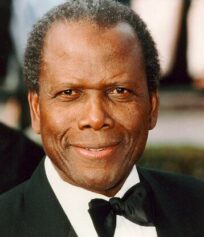Black Americans are committed to building intergenerational wealth. Black Americans are highly committed to leaving a legacy to future generations, found a recent U.S. Bank survey of 4,024 Black, white, and Latino respondents. Black people are also concerned about giving back. According to the data, 69 percent of African-Americans feel a responsibility to financially help their communities. That’s the highest of all the racial groups in the survey.
Affluent Black Americans want to pass on wealth to future generations through tangible assets like real estate and cash savings accounts.

Affluent Black Americans Feel Hopeful, But Say Discrimination Still a Challenge
Affluent African-Americans with $100,000 in investable assets said they’re hopeful about their financial situations, found the survey. Seventy percent of affluent Black Americans consider themselves as financially successful as 75 percent of their non-Black counterparts. Another 61 percent of younger affluent Black Americans say that their financial situation has improved from a year ago.
Despite the overall optimism, Black Americans still feel pessimism about the structural racism they have to deal with in their finances. In fact, 79 percent of African-Americans felt that there are institutional forces that keep them from accumulating more wealth, according to the U.S. Bank survey.
The massive Black-White wealth gap is a reason that 77 percent of African-Americans believe that the wealth gap will persist by 2030. The median Black income was $24,100, compared to the average white income of $189,100, the Center of American Progress reported in 2019.
Affluent Black women are especially pessimistic about financial planning. The U.S. Bank survey found that 47 percent of African-American women are more fearful about financial planning than 31 percent of Black men. Only 23 percent of affluent Black women feel financially prepared in contrast to 33 percent of African-American men.
Help Planning for the Future
To help contrast that fear and pessimism, Black financial advisors could help African-Americans become more financially savvy. The U.S. Bank survey found that more than half of affluent Black Americans making $100,000 or more have a financial advisor. However, twice as many Black Americans as Hispanic Americans said in the U.S. Bank survey that they were treated differently because of their race.
African-American financial advisors that are culturally sensitive can help Black Americans feel more comfortable discussing financial issues and how best to pass on their wealth to their families and communities. It’s especially important for young people. Sixty-five percent of millennials said in the U.S. Bank survey that financial advisors being the same race as them is important.




